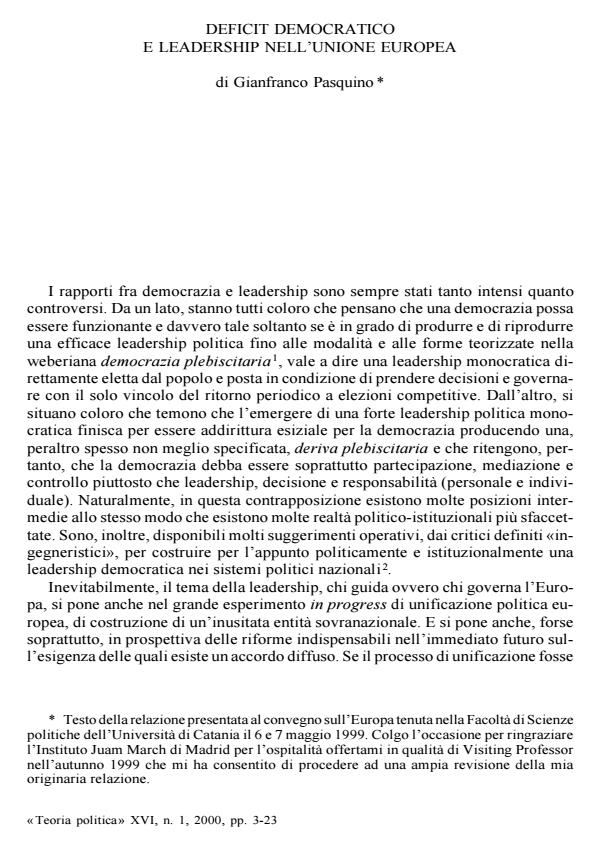Deficit democratico e leadership nell'Unione europea
Journal title TEORIA POLITICA
Author/s Gianfranco Pasquino
Publishing Year 1 Issue 2000/1
Language Italian Pages 21 P. File size 56 KB
DOI
DOI is like a bar code for intellectual property: to have more infomation
click here
Below, you can see the article first page
If you want to buy this article in PDF format, you can do it, following the instructions to buy download credits

FrancoAngeli is member of Publishers International Linking Association, Inc (PILA), a not-for-profit association which run the CrossRef service enabling links to and from online scholarly content.
There is a close relationship between democratic deficit and the construction of political leadership in the European Union. This article argues that the problem of democratic deficit derives not only from the type of institutions of the European Union, with political power firmly in the hands of the European Council and therefore of the governments of the Member States, but from the inability/unwillingness of political parties to run truly European campaigns for the election of the European Parliament. If the premises are correct, then it would be forlorn to look for a solution to the democratic deficit in a stronger role for the European Parliament and, more precisely, in a sort of (neo)parliamentary model implying a subordination of the European Commission to the European Parliament. On the contrary, the solution that promises both to reduce the democratic deficit, that is to encourage and increase the participation and the influence of European citizens, and to create an authoritative democratic leadership has to be found in a quasi-presidential model. The President of the Commission, once indicated as a candidate by at least one party in a number of States or in all of them, will be elected directly by the European voters. This solution, that by no means eliminates the need for additional institutional reforms, carries two advantages. First, it strengthens the European democratic leadership while automatically reducing the democratic deficit. Second, it will stimulate European parties to revitalize themselves and to reach out to their voters.
Gianfranco Pasquino, Deficit democratico e leadership nell'Unione europea in "TEORIA POLITICA" 1/2000, pp , DOI: